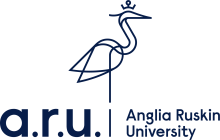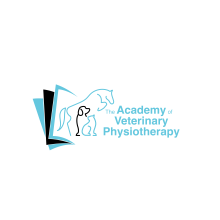Recognised Educational Provider
Body title
Recognised Educational Provider
Below is the list of training courses in musculoskeletal techniques with animals which have been assessed as meeting the RAMP standards for Recognised Educational Providers (REP) as laid out in the Foundation Document.
This means they are establishments whose courses have been assessed as providing a verified level of education by an awarding University, College, or other Recognised Awarding Organisation however do not reach the full criteria for Graduates to meet full RAMP entry criteria.
Applicants that complete two or more REP courses that combine to fully reach RAMP entry criteria can use qualifications from these courses to gain automatic entry to RAMP or a REP course as a step on a pathway application will simplify the application process.
Another page shows Accredited Educational Providers (AEP): details here.
NOTE: Some education providers have several courses at different standards.
| Provider | Course | Profession |
|---|---|---|
| Anglia Ruskin University, Writtle | MSc Veterinary Physiotherapy | Physiotherapy |
| Anglia Ruskin University, Writtle | Postgraduate Diploma in Veterinary Physiotherapy (2 years) | Physiotherapy |
| Animal Therapy Solutions Ltd | Level 4 Diploma in Equine Sports Massage | Physiotherapy |
| The Academy of Veterinary Physiotherapy | Level 4 Diploma in Animal Sports Massage | Physiotherapy |
| The Academy of Veterinary Physiotherapy | Level 5 Diploma in Animal Sports Massage and Rehabilitation | Physiotherapy |
| University of Nottingham | MSc Veterinary Physiotherapy (3yrs part time) | Physiotherapy |
| University of Nottingham | PG Dip Veterinary Physiotherapy (2yrs part time) | Physiotherapy |
| VET HED | Level 6 Diploma in Applied Advance Equine Hydrotherapy | Physiotherapy |
| VETHED | Level 4 Diploma in Applied Equine Hydrotherapy | Physiotherapy |

Course Description:
The MSc Veterinary Physiotherapy programme has been designed to develop the skills of the student to support veterinary surgeons in the rehabilitation of a variety of species; it focuses in particular on equine and canine patients. It will also focus on supporting equine and canine athletes both during competition and for recovery.
This programme runs on a part-time basis over three years, with the majority of formal content delivered at weekends. The first year includes academic modules to reinforce and expand background knowledge. In the second clinical year, students will work alongside qualified clinicians; the requirement for self-directed practice can be significant. The final year of the MSc programme requires the student to undertake a substantial piece of individual research in the form of a dissertation.
Course Outline:
Students study biomechanics, functional anatomy, pathophysiology of injury and disease, physiotherapeutic techniques, rehabilitation and remedial exercise, academic and professional skills and clinical practice within the first two years. There is also a requirement for students to undertake a number of placement days with a qualified practitioner.

Course Description:
The MSc Veterinary Physiotherapy programme has been designed to develop the skills of the student to support veterinary surgeons in the rehabilitation of a variety of species; it focuses in particular on equine and canine patients. It will also focus on supporting equine and canine athletes both during competition and for recovery.
This programme runs on a part-time basis over two years, with the majority of formal content delivered at weekends. The first year includes academic modules to reinforce and expand background knowledge. In the second clinical year, students will work alongside qualified clinicians; the requirement for self-directed practice can be significant. The final year of the MSc programme requires the student to undertake a substantial piece of individual research in the form of a dissertation.
Course Outline:
Students study biomechanics, functional anatomy, pathophysiology of injury and disease, physiotherapeutic techniques, rehabilitation and remedial exercise, academic and professional skills and clinical practice within the first two years. There is also a requirement for students to undertake a number of placement days with a qualified practitioner.

The content of this qualification will enable the learner to fully understand equine sports massage theory and successfully carry out massage techniques to treat injury and support horses and riders in competition or general training.
Through understanding skills, knowledge and behaviours and successfully applying them in direct context, learners will be provided with relevant, first-hand experience which suitably prepares them for employment and progression with in this specialist area.
Progression options include employment as an Equine Sports Massage Therapist, or related roles such as Multi- skilled Groom or Equine Assisted Therapist.
This course will be accepted as the total massage component for a RAMP entry criteria and will be credited 150 practical education hours towards a full submission to RAMP on graduation from further education to one of the three professions

The Academy of Veterinary Physiotherapy was established to offer a flexible, accessible and achievable, vocational pathway to a qualification on route to a degree equivalent qualification in veterinary physiotherapy.
The Academy delivers iPET Network, Ofqual regulated qualification Level 4 Diploma in Animal Sports Massage.
On successful graduation from this program learners will be able to progress to the Level 5 Diploma in Animal Sports Massage and Rehabilitation.
This qualification forms a structured pathway, enabling you to begin building your business and experience as you progress.
Training is offered via a flexible blended learning approach utilising an online learning platform, remote lectures and study groups, and face to face training which are all offered on a flexible timeline.
In addition to a compete syllabus in animal sports massage, this programme includes a focus on study skills and personal development and wellbeing, supporting you throughout your training and into your future career.

The Academy of Veterinary Physiotherapy was established to offer a flexible, accessible and achievable, vocational pathway qualification on route to a degree equivalent qualification in veterinary physiotherapy.
The Academy delivers iPET Network, Ofqual regulated qualification Level 5 Diploma in Animal Sports Massage and Rehabilitation which is a progression from the Level 4 Diploma in Animal Sports Massage.
On successful graduation from this program learners will be able to progress to the Level 6 Diploma in Veterinary Physiotherapy.
Together, these qualifications form a structured pathway, enabling you to begin building your business and experience as you progress.
Training is offered via a flexible blended learning approach utilising an online learning platform, remote lectures and study groups, and face to face training which are all offered on a flexible timeline.
In addition to a compete syllabus in animal sports massage, and rehabilitation, this programme includes a focus on study skills and personal development and wellbeing, supporting you throughout your training and into your future career.

TBC
Course Outline:
TBC

Course Description:
TBC
Course Outline:
TBC

Written and delivered by an experienced veterinary physiotherapist supported by a team of experts, this is the highest level of qualification available for equine hydrotherapy and is available internationally. The content of this qualification will enable the learner to fully understand equine hydrotherapy with a grounding in both theory and practice. Graduates will be able to deliver hydrotherapies, treat injuries, and support horses in rehabilitation, competition, or training, with confidence and professionalism.
Through understanding skills, knowledge, and behaviours and successfully applying them in a direct context, learners will be provided with relevant, first-hand experience which suitably prepares them for employment and progression within this specialist area.
Progression options include employment as an equine rehabilitation or equine hydrotherapy centre manager, clinical educator or consultant to the veterinary industry. This qualification provides a valuable adjunct to anyone with a veterinary background who is looking to enhance their practice or diversify their career.
This course will be accepted as the total Hydrotherapy component for RAMP entry criteria and will be credited 150 practical education hours towards a full submission to RAMP on graduation from further education to one of the three professions.

The Gatehouse Awards (GA) Level 4 Diploma in Applied Equine Hydrotherapy prepares you for a career in equine hydrotherapy and rehabilitation. Recognised by insurers, veterinarians, and industry experts, this qualification provides specialised skills in equine physiology, sports rehabilitation, and professional record-keeping within the scope of Hydrotherapy. Graduates can apply for membership with the Institute of Equine Hydrotherapists (IEH), part of IRVAP, marking them as skilled professionals and as the
hydrotherapy component of a RAMP application.
Take the next step toward a rewarding career with this industry-respected diploma."
Latest News
RAMP has a new President
Lucinda Stott is a Chartered Physiotherapist and gained a MSc Veterinary Physiotherapy from Hartpury University.
RAMP Winter Newsletter 2025
RAMP have pleasure in sharing the latest Newsletter which outlines the work over the summer and autumn 2025.
Use the link below or look on the RAMP Facebook page for the full document.
RAMP AGM 2026
The RAMP AGM 2026 is scheduled for February 4th 2026 at 7pm. All registrants who register will receive a ZOOM link.